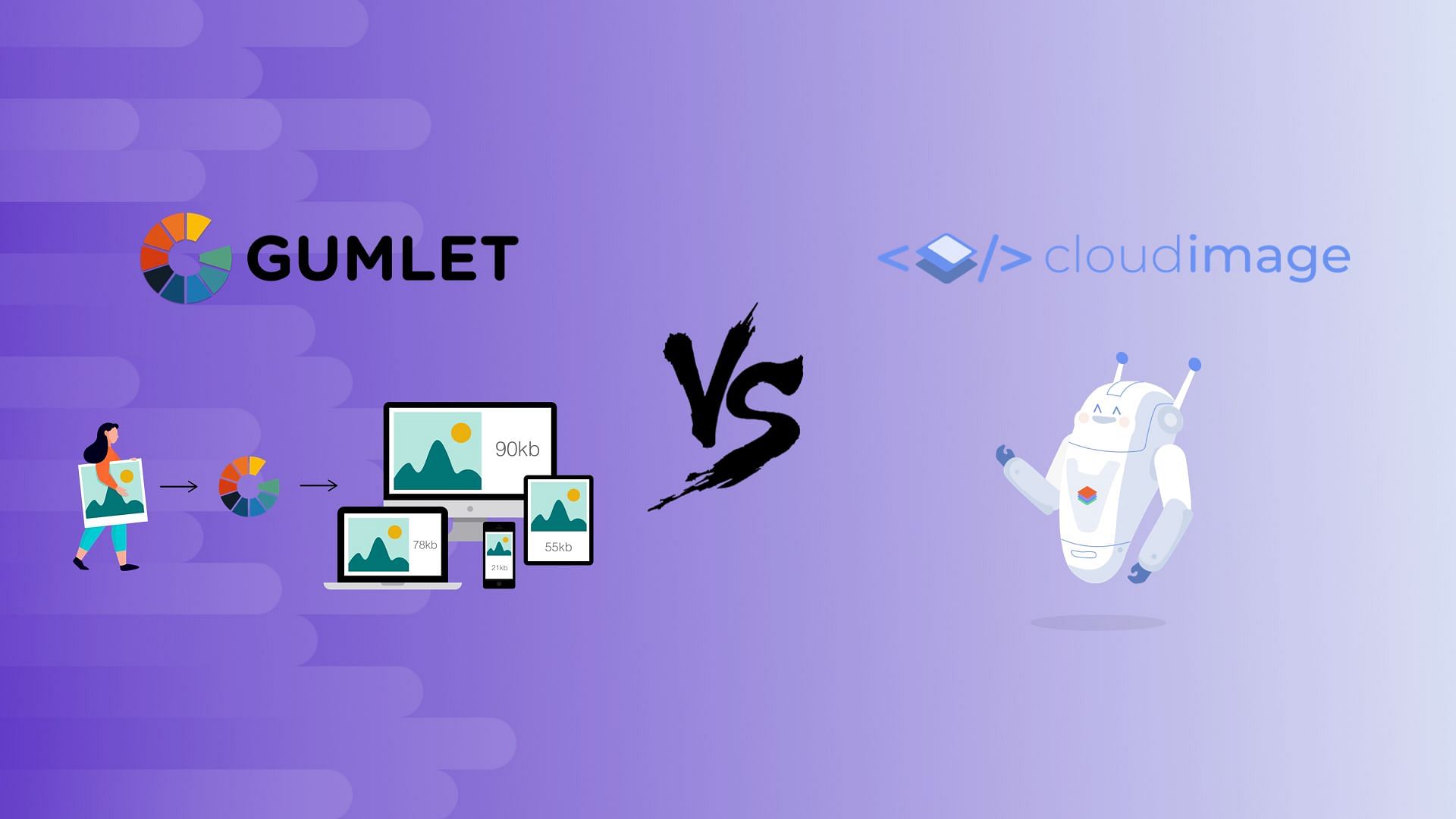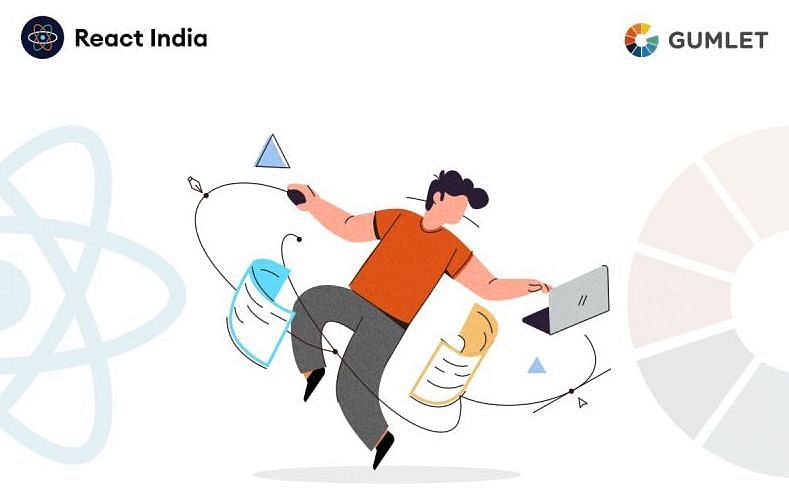Appsumo is one of the best platform for launching your products with a "Life Time Deal". It has an amazing community which is always ready to try out new products.
Gumlet launched a lifetime deal (link) on Appsumo in Jan 2020. Our aim was to launch our WordPress plugin and understand more about the market. The deal was a very successful! We have helped 3000+ sites improve their page speed since. A blog about our complete journey and the lessons learned will follow soon.
Gumlet deal will end on 1st May 2020, grab it before it is gone! (link)
However, last week another good image optimisation deal LTD was launched by Cloudimage.io. There is a lot of discussion and confusion in the community about how these product compare and which one should they choose? Cloudimage has published a comparison, but we found it lacking and incorrect at times.
That is why we decided to publish a comparison that will help the users decides what is best for them. We want this competition to be friendly and healthy. That is why I have linked original documentations of both companies whenever possible. If is any incorrect information here, please reachout to me and I will update it as soon as possible.
We will focus on 2 main implementations supported by both platforms: WordPress Plugins and JS Plugins. The comparison is divided in 3 main categories:
- Image optimization
- Service parameters
- Advance features
TL;DR - A comparison table
| Gumlet | Cloudimage | |
|---|---|---|
| Image Optimization | ||
| Responsize image resize | Better resizing | yes |
| Image compression | yes | yes |
| Auto WebP | yes | yes |
| Lazy load | yes | yes |
| Image SEO* | yes | yes |
| Image caching | Unlimited caching | Limited caching |
| Content Delivery Netword (CDN) | yes | yes |
| Service Parameters | ||
| Reliablity | 3 image processing centers | 1 centers |
| Ease of use | WordPress & JS plugins | WordPress & JS plugins |
| Pricing | $0.1 per GB | $0.25 per GB + caching charges |
| Support | chat & email | chat & email |
| Detailed Analytics | yes | yes |
| Free trials | yes | yes |
| Advance features | ||
| Next gen formats (HEIF / AVIF) | yes | no |
| Color Channel Operations | yes | no |
| Per image source settings | yes | no |
| Automatic global routing | yes | no |
| Aspect Ratio Resize | yes | no |
| Watermarks and overlay | yes | yes |
| Smart Cropping and face crop | yes | yes |
| Cache invalidation/purge API | yes | yes |
| Magento integration | yes | yes |
| Strict privacy & GDPR compliance | yes | yes |
| Role-based access control | yes | yes |
| Origin URL whitelisting | yes | yes |
| CDN Cache invalidation | yes | yes |
| URL signature | yes | yes |
| Integrated DDOS Protection | yes | yes |
| Multi-tenant | yes | yes |
| Existing Enterprice clients | yes | yes |
| Deliver JS / CSS files via CDN | yes | yes |
| 360 views | no | yes |
For a more detailed analysis and fine print, read on!
Image Optimization
We have broken down this to 7 important components.
Responsive image resize
Result: Gumlet is better at resizing! 🎉
Both services have responsive resizes features. But Cloudimage's responsive resize rounds up the image size to nearest 100 multiple to save on image caching. Whereas Gumlet rounds up to nearest 10 multiple. This means that an image which takes up 355px on your screen would be served by Gumlet in 360px size whereas Cloudimage would serve it in 400px size. This way Gumlet would be able to provide more image optimization.
Image Compression
Result: A tie 👔
Both services use their own AI powered, perceptually lossless compression algorithms. Running a complete benchmark would be too much work and out of the scope of this comparison. However, Gumlet compresses SVG format images which is not supported by Cloudimage yet.
Auto WebP
Result: A tie 👔
Both services convert images to WebP whenever supported by browser.
Lazy Load
Result: A tie 👔
Both services offer lazy loading and progressive loading for a faster viewing experience.
SEO
Result: A tie 👔 (?)
This is may be one of the 2 controversial topics of comparison in this entire blog.
Gumlet ensures that your image SEO remains intact by sending "canonical link" header to the search engines. This is done automatically for all users without any config required. Cloudimage does not do this.
This functionality is well supported by Google (Read more) and popular in the SEO landscape (Read more). It is also supported by lots of other WP plugins like ShortPixel.
On the other hand Cloudimage provides custom CNAME support with their deal and their basic plans. Setting your own custom CNAME would eliminate the requirement for "canonical link" header, but one has to contact their support team and do additional settings to get those features. If you don't do those additional settings, you would lose your image SEO.
Gumlet also provide custom CNAME support, but at an additional price. Please check pricing section for more details. At the end we leave the verdict on this one to users based on what is important for them.
Image Caching
Result: Gumlet offers unlimited caching! 🎉
Both services cache the optimized version of your images. But Gumlet provides an unlimited free caching! Whereas Cloudimage has limits on how much image cache they would provide.
Content Delivery Network (CDN)
Result: A tie 👔
This could easily be the most controversial part of this comparison. Cloudimage marketing emphasis a lot on premium CDN providers to guarantee best performance world wide. However, there are no public benchmark available for the CDN they use. Gumlet uses AWS CloudFront for which there are a ton of publicly available benchmarks. According to this one has a CloudFront latency of 35 ms while the fastest CDN out there has a latency of 33 ms. Based on this we believe there can not be any "significant" difference in CDN provided by either services.
Service Parameters
After comparing the core image optimization functionality, let's see how both services compare in user experience related aspects.
Reliability
Result: Gumlet wins! 🎉
Images are a very crucial part of your website's UX and hence reliability is a very important aspect.
Gumlet offers 99.9% uptime SLA vs Cloudimage's 99.5% uptime SLA.
More importantly, Gumlet has 3 image processing centers in Singapore, Frankfurt and San Francisco. Not only this allows us to process your images from the nearest center, it also makes our service fault tolerant. In an unlikely event of one region failing, our other region can automatically take up the load temporarily. We also have auto scaling mechanisms in place.
Compared to this Cloudimage has only 1 image processing center in Europe. As per our internal testing all the images are sent to Europe for processing.
Gumlet's service status is trackable on our status page, it is public and transparent. We could not find Cloudimage's status page.
Ease of Use
WordPress plugin result: A tie 👔
WordPress plugins for both service are super easy to integrate. Gumlet does have some advanced settings like ability to exclude images from optimization, but we will call it a tie here.
JS plugin result: Gumlet is easier to use! 🎉
We found that our JS plugin is much easier to integrate. While Cloudimage's documentation looks similar, but it requires a lot more work to extract the same image optimization performance.
For e.g. they require you to manually add aspect ratio for image image manually. Gumlet takes care of this automatically with Aspect Ratio Resize.
Also with Gumlet you can optimize image coming from multiple sources like Wasabi and DigitalOcean Storage which are not supported by Cloudimage yet.
Pricing
Result: Gumlet is much more affordable and scale friendly! 🎉
Gumlet (pricing) is clearly the more affordable of the two services. For a website with about 50k monthly visitors and 200 GB image CDN usage. Gumlet would cost $20/month, while Cloudimage would cost about $115/month.
If you pay Gumlet $25/month, you would get custom CNAME support as well. (Please note that, this is not a total $45 / month for Gumlet as the CNAME support also comes with 250 GB/month of CDN usage)
Support
Result: A tie 👔
Both services provide chat and email support.
Analytics
Result: A tie 👔
Both services have in-depth analytics dashboards.
Advance features
These are the features that not every users require. We have just list them out without much explanation. Please reachout to us over support chat for more details on any of them.
Conclusion
To be honest both Gumlet and Cloudimage are great services for image optimization. Either service is better then most of the other solutions in the market. It's a win-win for the customers that both services are running a $49 lifetime deal on Appsumo.
We have tried our best present a fair and honest comparison which would help users decide in the easiest possible way.
If there are any inaccuracies please reachout to me via our support chat and I will make the corrections.
Thank you for reading and keep safe! 🙂




